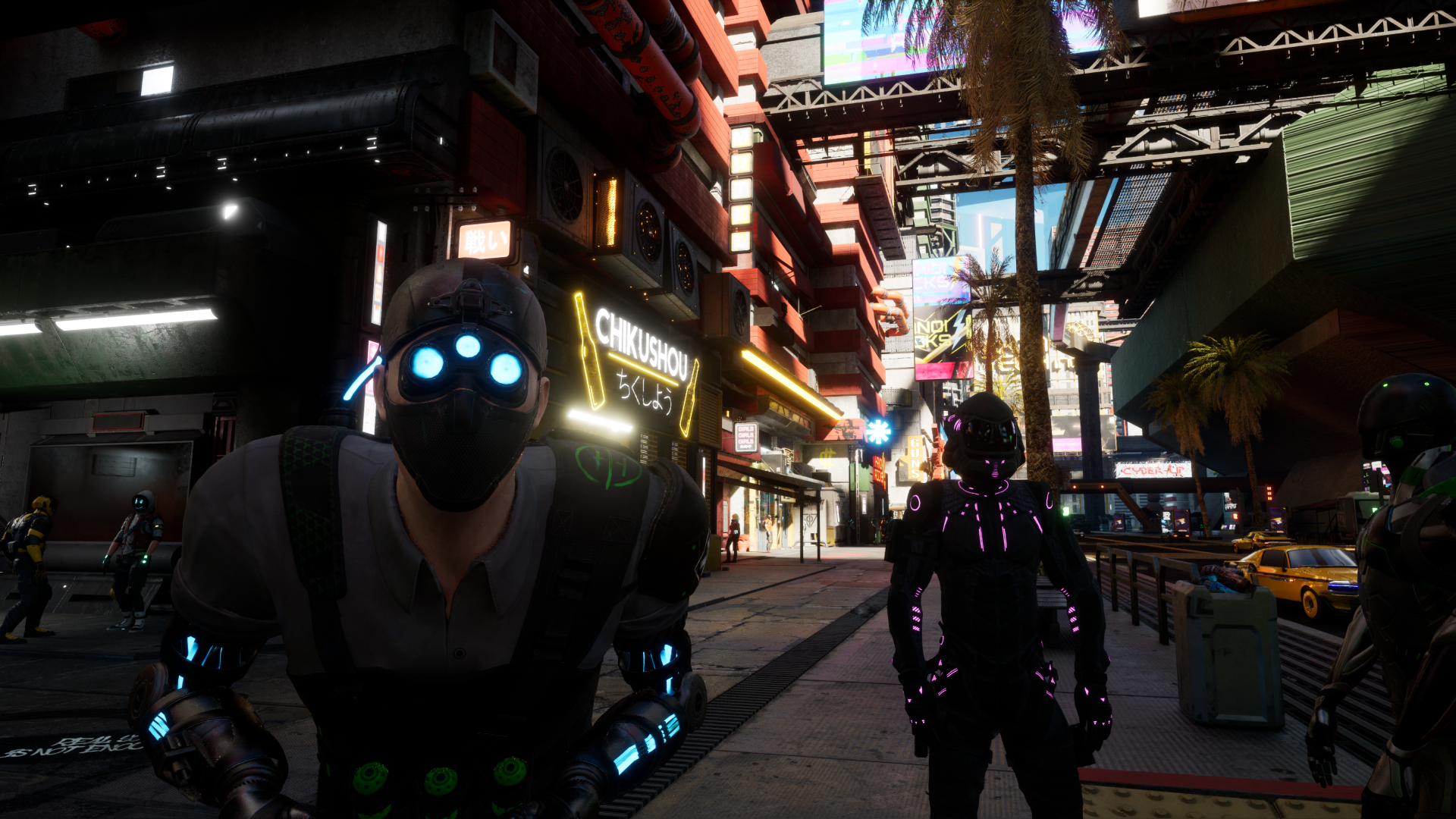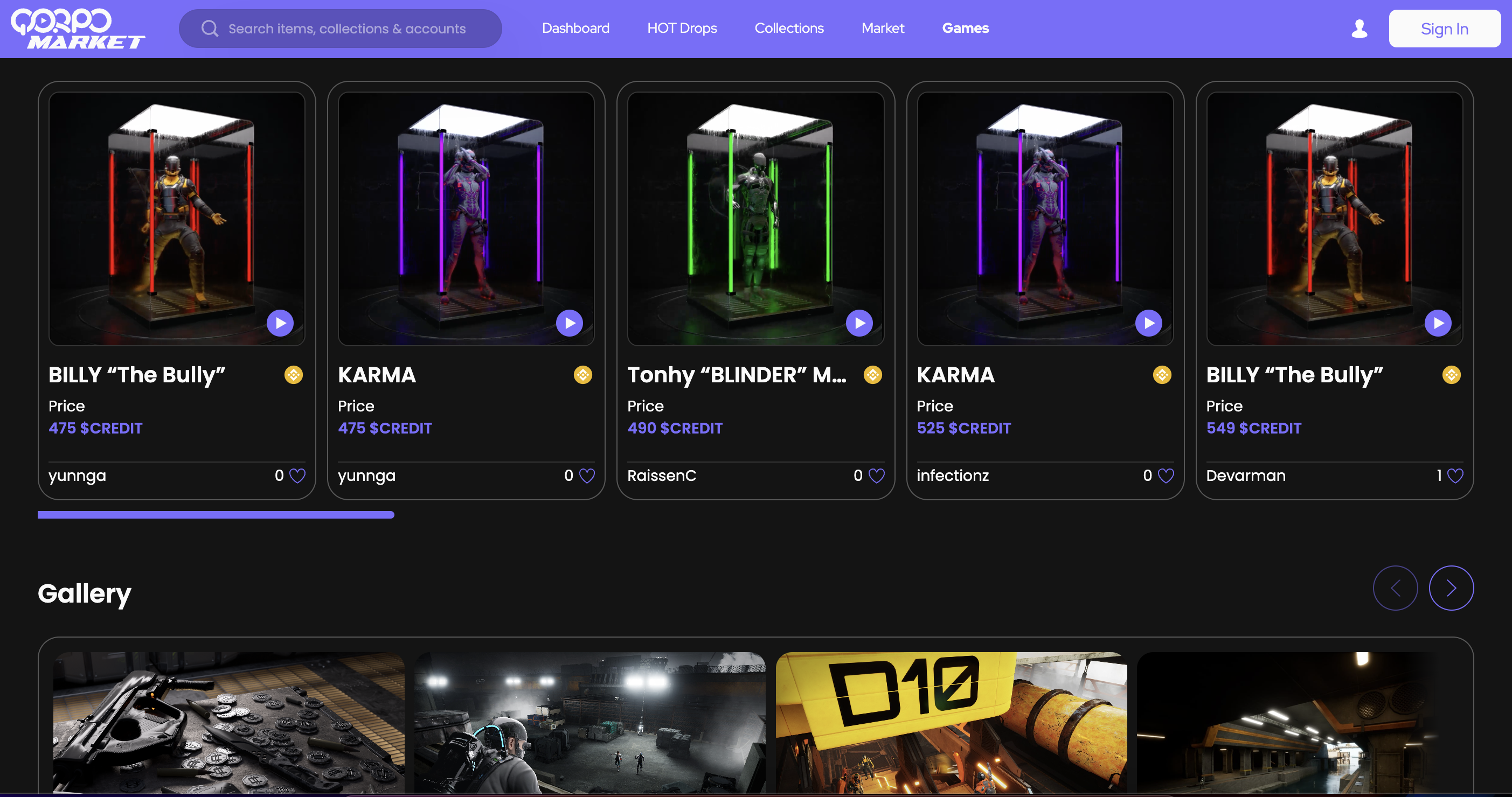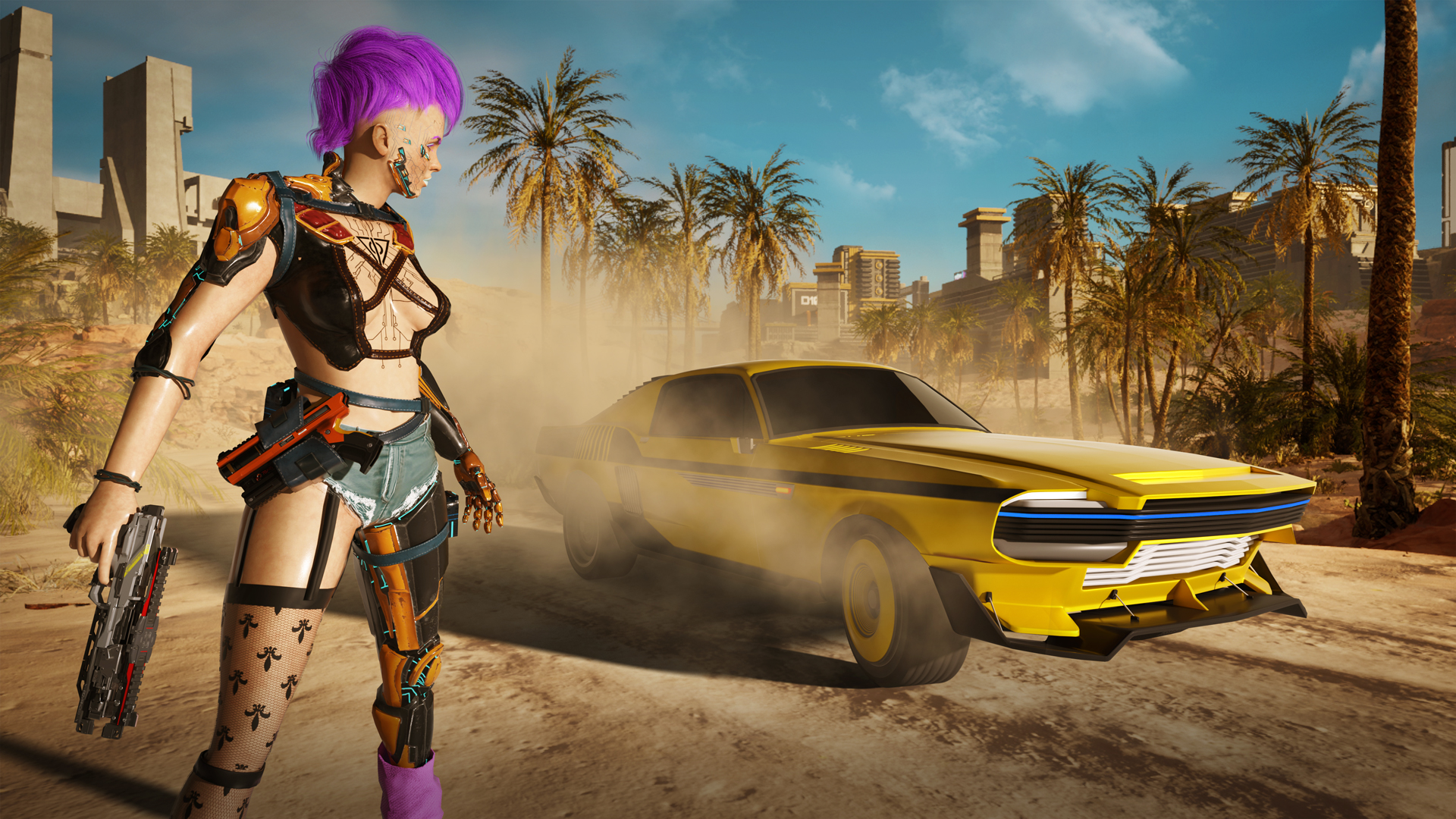
The world of gaming is undergoing a revolutionary shift. From hyper-realistic graphics to massive multiplayer worlds, the gaming industry is constantly pushing the boundaries of virtual immersion.
One of the most exciting developments in this evolution is the rise of metaverse gaming, where players can interact with each other and the environment in real-time, creating a truly immersive gaming experience.
However, the future of this industry holds even more exciting developments. The integration of Web3 technologies is set to revolutionize the way players engage with games.
QORPO, a Web3 game studio composed of experienced professionals from Ubisoft, Electronic Arts, and Riot Games, is innovating the entire gaming experience with these major advancements.
Player ownership redefined
The advent of non-fungible tokens (NFTs) has had a significant impact on the gaming industry, transforming the way in which players interact with and monetize their in-game assets. Not to mention, NFTs have enabled the emergence of NFT marketplaces, where players can trade digital collectibles for other items of real-world value.
The new paradigm shift surrounding NFTs is fixing the skewed dynamics that exist between players and game developers. As QORPO CEO Rastislav Bakala explains, “the price of maxing out a character’s attributes and inventory in a game like Diablo Immortal can reach over $100,000, yet players are unable to sell or monetize these assets in any way. This is an abuse of the free-to-play system by the developer.”
In an effort to address the problem of player ownership, QORPO Game Studio has implemented the use of NFTs in their free-to-play shooter game, Citizen Conflict. In this dystopian metaverse where “Citizens” battle against “Corporations”, players acquire characters, masks, and weapons that are each represented as NFTs.

By leveraging the Web3 standards powering NFTs, QORPO Game Studio has been able to allow players to rightfully own, upgrade and trade their assets using their digital profile. By doing so, players are able to explore new ways of experiencing game rewards.
QORPO is not the only one bringing the benefits of NFT digital ownership to gamers. The $5.9 billion Web3 company, Animoca Brands, is also “advancing digital property rights for gaming and the open metaverse”. Other Web3-based games such as The Harvest and Illuvium are also pushing this paradigm forward.
Beyond gameplay, players have new monetization choices
Gamers have a long-standing tradition of showcasing their in-game achievements. And this tradition has given rise to secondary markets for in-game content, particularly weapon skins, even before the introduction of NFTs.
One example of this is the market for weapon skins in the popular game Counter-Strike: Global Offensive (CS:GO). The CS:GO skins have gained immense popularity among gamers, with some fetching exorbitant prices on the secondary market. For instance, an AK-47 rifle skin in CS:GO was sold for $150,000.
Since the onset of NFTs, the scenario of in-game asset trading has changed significantly. Today, there are new revenue models for both players and game studios.
Players have the freedom to list their items on NFT trading platforms and sell them using non-custodial Web3 wallets, ensuring that no one, including the game developer, can take away their assets without consent.

However, that is not the only way to earn. Games and developers can also benefit from the sale of assets as NFTs, as well as from recurring royalty fees.
NFTs have resulted in a significant amount of royalties being paid out to creators, with over $1.8 billion being distributed on the Ethereum network alone. OpenSea ranks among the platforms that have paid out the most royalties. Notably, the average royalty percentage paid out to creators on OpenSea has seen a significant increase from 3 percent to 6 percent in the past year.
The possibilities of monetization and player engagement are just beginning. It is a trend that will continue to grow as the industry discovers the benefits of the concept and the technology behind it.
DAOs and social gaming communities
When we talk about the advancements in immersive gaming, Decentralized Autonomous Organizations (DAOs) cannot be overlooked.
DAOs are revolutionizing the gaming space by allowing players to have direct influence in the game’s development and rules. They can be used to fund game development, manage in-game economies, and vote on game updates.
DAOs also help to enforce fair play and resolve community disputes through trustless smart contracts. “Once the voting ends, there is a clear verdict made by anonymous users, fully transparent, written on the blockchain, and managed by a smart contract,” says Bakala.

With DAO involvement, players have a voice in the game development process, allowing them to have stronger emotional ties to the game’s evolution.
QORPO’s team experience working on hit titles such as Overwatch, Stray, DayZ, Mortal Kombat 11, and Arma III inspired them to recognize the importance of social inclusion. ”DAO voting is the cleanest and most honest statistic that the developers can get from gamers – pure feedback regarding their product from the perspective of gamers and their opinions,” adds Bakala.
A new era for gaming and beyond
The immersive gaming space is ripe with potential for innovation and growth. The future of gaming is in the hands of players and game developers, who have the power to shape new gaming standards. Games are heading towards a future where it’s not just fun to play, but also deeply immersive, interactive and engaging to break the boundaries of traditional experiences.
The Human & Machine podcast is dedicated to inform and demystify the crypto, DeFi, GameFi, NFTs, and blockchain industries for the average person.
 Tlahui is a man in love with words and blockchain. His storytelling and passion to communicate led him to co-host The Human & Machine, a podcast and YouTube channel. Where he rightfully plays the role of an average-minded Human trying to understand and explain in layman terms, the lingo and complexities thrown at him by The Machine, his heartless, yet brilliant co-host.
Tlahui is a man in love with words and blockchain. His storytelling and passion to communicate led him to co-host The Human & Machine, a podcast and YouTube channel. Where he rightfully plays the role of an average-minded Human trying to understand and explain in layman terms, the lingo and complexities thrown at him by The Machine, his heartless, yet brilliant co-host.
 Hikaru is a blockchain lover with a weakness for cooking. His outstanding understanding and experience in blockchain technologies, plus his unhuman work ethic have earned him the nickname of The Machine. In the show, he plays the role of a hybrid all-knowing robot that goes out of his way to explain blockchain concepts to The Human while trying not to lose faith in humanity.
Hikaru is a blockchain lover with a weakness for cooking. His outstanding understanding and experience in blockchain technologies, plus his unhuman work ethic have earned him the nickname of The Machine. In the show, he plays the role of a hybrid all-knowing robot that goes out of his way to explain blockchain concepts to The Human while trying not to lose faith in humanity.
 Kenny Au, aka The Brain, is a #Web3.0 #FutureofWork #DistributedOrganizations Outerspace OG. His brain functions in spacetime. Plus his innate visions and strategies in Web 3.0 have developed him the nickname of The Brain.
Kenny Au, aka The Brain, is a #Web3.0 #FutureofWork #DistributedOrganizations Outerspace OG. His brain functions in spacetime. Plus his innate visions and strategies in Web 3.0 have developed him the nickname of The Brain.
TechNode Global INSIDER publishes contributions relevant to entrepreneurship and innovation. You may submit your own original or published contributions subject to editorial discretion.
How NFTs are enhancing the way we experience the real and digital worlds [Podcast]
Featured image credit: QORPO

